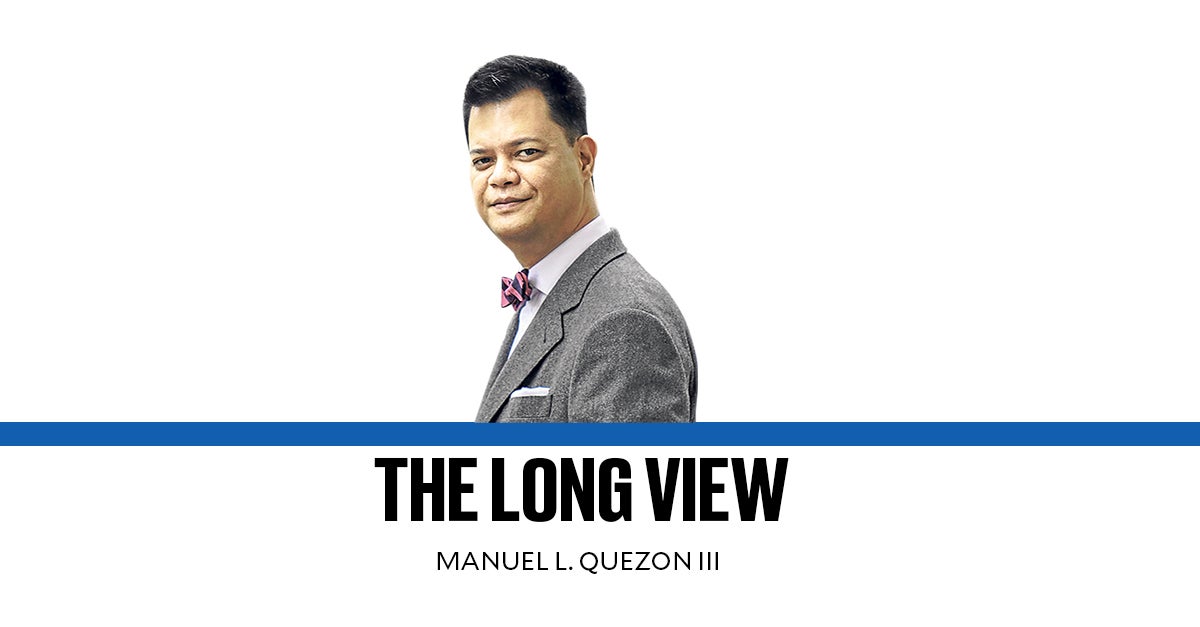The perils of underestimation

Here is a quote from the science fiction novel ”Ender’s Game” that I’ve used for years to describe the 36-year restoration campaign from 1986 to 2022: “I am your enemy, the first one you’ve ever had who was smarter than you. There is no teacher, but the enemy. No one but the enemy will tell you what the enemy is going to do. No one but the enemy will ever teach you how to destroy and conquer. Only the enemy shows you where you are weak. Only the enemy tells you where he is strong. And the only rules of the game are what you can do to him and what you can stop him from doing to you.”
Since he ran for the vice presidency in 2016, I’ve asked people active in Edsa one constant question: In 1986, one of those considered the most hawkish in President Marcos’ inner circle was his son. Yet today, this is hardly his reputation. So, what happened? No one has ever given me a straight answer to this basic question.
Recently, a friend of the President finally gave me one when he recounted how Ferdinand Jr. reminisced about how the late President Ferdinand Sr., on his good days, spent his exile systematically and thoroughly, passing down to his son and heir a lifetime’s worth of lessons learned in politics (and much else besides). That was a time, incidentally, when the President’s elder sister was in exile, elsewhere in Morocco.
Salvador P. Lopez, former president of UP, once described Marcos Sr. to the American historian Theodore Friend in this manner: Lopez said Marcos Sr. was “obscure, manipulative, calculating (he pointed to his head while frowning and narrowing his eyes).” The term his contemporaries used to compare his political dexterity was jujitsu—something swift, nearly surgical, and lethal. Marcos Sr. himself once advised Time Magazine that you should never make a decision when you are angry, hungry, or sleepy.
The President’s man in London, Ambassador Teodoro Locsin Jr., posted something on Sept. 18, which suggests the hawk of 1986 is still there: “My President grew up in England and admires all things British. He said to me that the English will fight with their bare hands if they must. Let’s learn from them.” The learning, not the fighting or the daring—it goes without saying if you are in the eat-or-be-eaten world of high-stakes politics—is the thing.
The public persona of the President today—amiable, imperturbable, and thus, astounding when ruthless—departs from the well-accustomed boastfulness and bluster that passes, most of the time, for political showmanship among the President’s peers. Just because he doesn’t conform to the hyperactivity or the “hyperloquaciousness” that passes for dynamism in these parts doesn’t mean that there is a strategy and not just tactics.
What, then, is the strategy? To appear so relaxed as to make whatever ensues seem to be an inevitability. If, as Lao Tzu famously warned, there is no greater danger than to underestimate an enemy, those dismissing the President as mere “nepo” ought to consider Franklin D. Roosevelt’s cunning corollary to the warning: “Never underestimate a man who overestimates himself.”
Since time immemorial, the best defense when the going gets tough has been to run out the clock. And so you have the Bart Simpson defense: I didn’t do it, nobody saw me do it, you can’t prove anything. Similarly, senators implicated in cash-for-contracts crow they will sign waivers and disclose their bank accounts—maybe, someday; it depends.
Do what it takes to fight another day. Then, the day of the announcements about the Anti-Money Laundering Council (AMLC) came.
The announcements came two days apart, first concerning Sen. Jinggoy Estrada, Sen. Joel Villanueva, and assorted other suspects. Then, covering former senator, now Mayor Nancy Binay and former Senate President Francis Escudero.
The AMLC announcements came days after Filipinos from all walks of life rallied at Luneta and the Edsa Shrine to express anger while debating what to do about it. And here I want to bring up something few have noticed, and to which all of us should be paying attention.
In 2023, the President signed a budget that took out the Vice President’s intelligence funds. This was significant because the budget passed in 2023 was for 2024, and that was the actual midterm election budget. In 2024, the President complained about over P100 billion in insertions that he vetoed, because it was the budget for 2025, half of which was after elections. In 2025, after the midterms, where he did worse than expected, he confronted both chambers of Congress and kicked off an offensive still unfolding before our eyes.
Days after his State of the Nation Address, the Palace released a list of the biggest contractors, and this got the public furiously digging into the lifestyles of those named. All sorts of allegations, followed by investigations, took place; but it was the Department of Justice that actually started filing cases, and now, the momentum remains with the Palace, as first the Senate president, then the speaker, has fallen.
When the President pointed fingers at some of his own people, the floodgates opened. Like a demolition, even a flood can be controlled.
—————-
Email: mlquezon3@gmail.com; Twitter: @mlq3


















